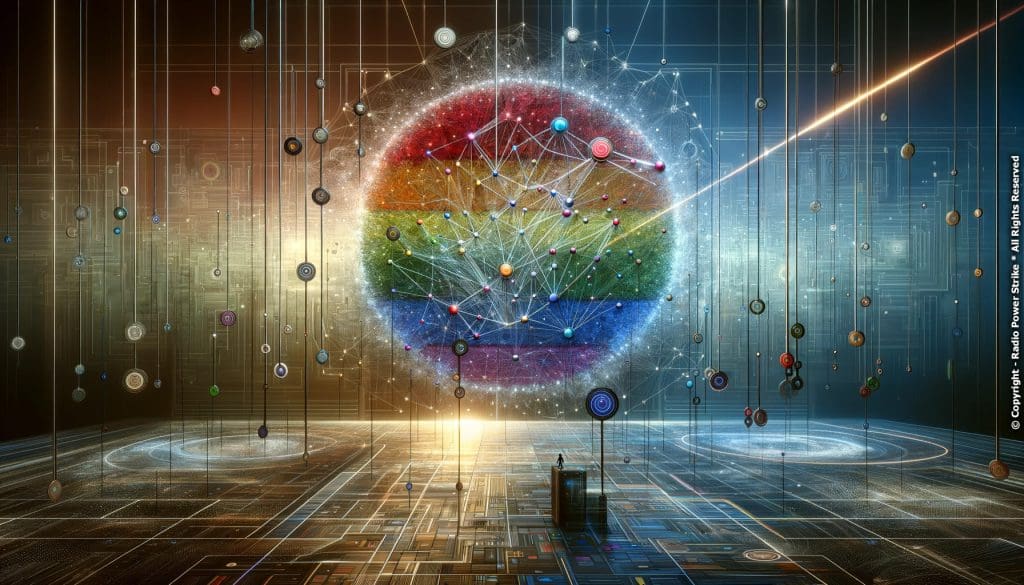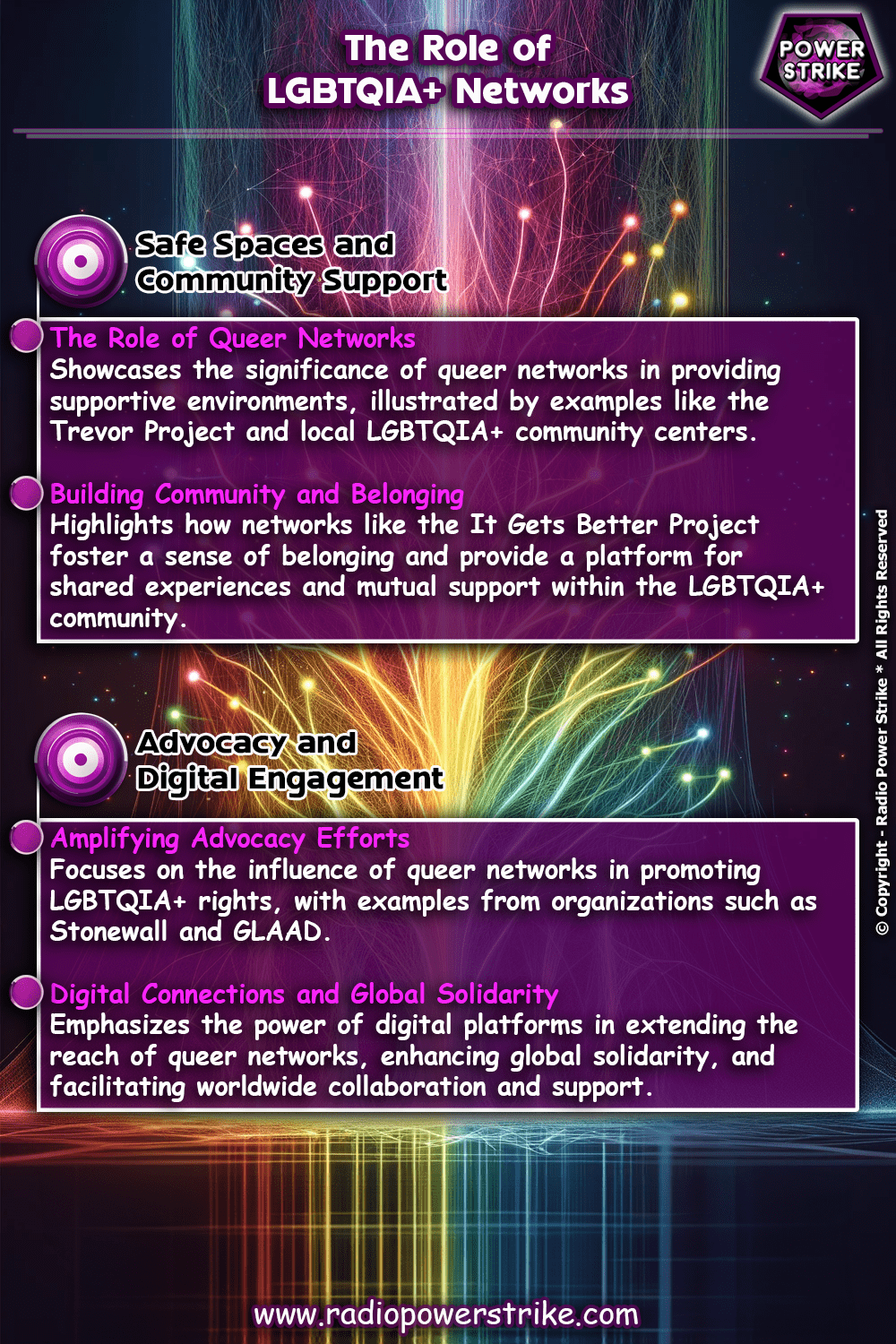The Power of Queer Networks: Building Connections and Communities
Strengthening Bonds and Fostering Inclusion through LGBTQIA+ Networks
Listen to this article: [player id=25011]

In an interconnected world, networks play an essential role in fostering connections and building communities. Among these, queer networks stand out for their unique ability to offer support, amplify voices, and advocate for change. This article delves into the multifaceted impact of LGBTQIA+ networks, spotlighting their invaluable contributions to both the queer community and society at large.

Creating Safe and Supportive Spaces
Queer networks, whether formal organizations or informal social groups, provide essential safe spaces for LGBTQIA+ individuals. Within these networks, members find solace, understanding, and an environment free from judgment. For instance, the Trevor Project offers crisis intervention and suicide prevention services for LGBTQIA+ youth, reflecting the life-saving potential of such networks.
Similarly, local LGBTQIA+ community centers around the world serve as hubs where individuals can access resources, attend events, and build connections. These spaces not only foster a sense of belonging but also equip members with the tools to navigate challenges.
The power of these networks is exemplified by initiatives like the It Gets Better Project, which shares uplifting stories from the LGBTQIA+ community, assuring young queer individuals that they’re not alone in their struggles.
Amplifying Voices and Advocating for Change
Beyond support, queer networks play a pivotal role in advocacy and activism. Organizations like Stonewall in the UK and GLAAD in the US work tirelessly to champion LGBTQIA+ rights, leveraging the collective strength of their networks to effect change.
These networks also amplify queer voices in media, ensuring diverse representation and challenging stereotypes. For example, the #RepresentationMatters movement underscores the importance of seeing LGBTQIA+ stories authentically portrayed in films, television, and literature.
By pooling resources, sharing knowledge, and uniting voices, queer networks have been instrumental in milestones like the legalization of same-sex marriage in numerous countries and the continual push for equal rights globally.
Strengthening Bonds through Digital Platforms

The digital age has provided queer networks with platforms to expand their reach and impact. Social media groups, online forums, and apps tailored to the LGBTQIA+ community facilitate connections that transcend geographical boundaries.
For example, platforms like HER cater specifically to queer women, offering a space to connect, share, and engage. Similarly, online events, webinars, and digital pride celebrations ensure that even in challenging times, the spirit of community remains undiminished.
These digital networks also foster global solidarity, enabling individuals from different countries and cultures to share experiences, offer support, and collaborate on initiatives. Through the power of technology, the queer community stands more united than ever.
Queer networks, with their diverse tapestry of connections and communities, exemplify the transformative potential of coming together. They offer support in times of need, amplify voices in advocacy, and foster connections in an increasingly digital world. Through these networks, the LGBTQIA+ community finds strength in unity, continually shaping a more inclusive and understanding world for all.

Comments are closed, but trackbacks and pingbacks are open.